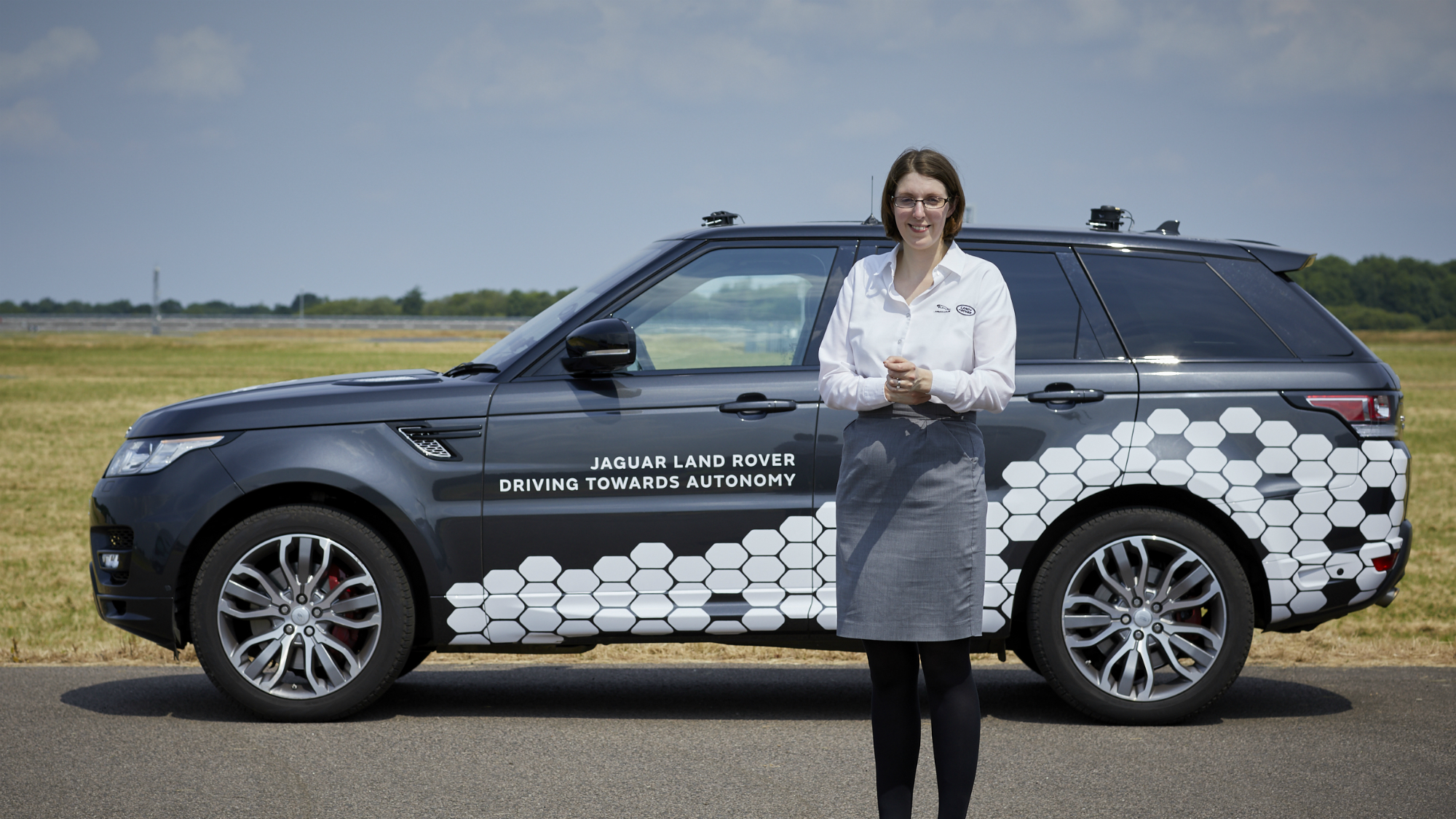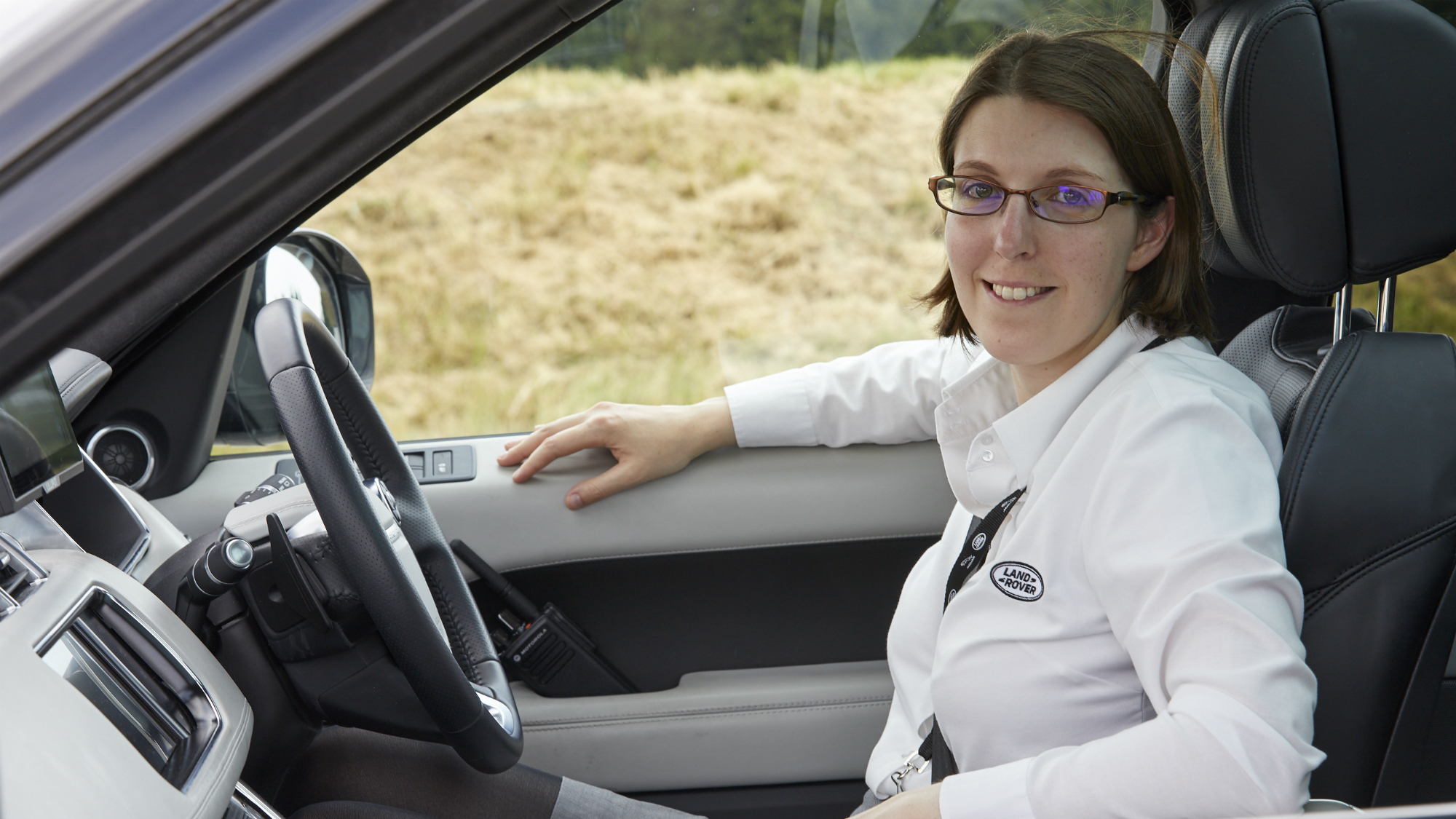This is what it’s like to be a woman changing the future of the car industry
We speak to award-winning autonomous vehicle research lead, Amy Rimmer, about her work in the engineering industry and the future of driving hands-free

We speak to award-winning autonomous vehicle research lead, Amy Rimmer, about her work in the engineering industry and the future of driving hands-free
Jaguar Land Rover Research lead engineer Amy Rimmer is changing the face of what is a traditionally-male industry. Leading research projects into autonomous vehicle control, Amy is shaping the future of how we drive, and her innovation was recognised by Autocar last year, who presented her with their Rising Star Award. We spoke to Amy to get the lowdown on the engineering industry, and how vital her role is in an industry where only 11% of engineers are women.
How did you get into engineering?
'To be honest, I fell into it, but I get inspired when I think of how autonomous vehicles will help in the future. I used to work in the aerospace industry, but then I was offered my PhD in autonomous vehicle research (specifically focusing on reversing lorries), and my job at Jaguar Land Rover was a natural fit.'
What does a typical day look like for you?
'My days can be quite varied, but they usually consist of programming and vehicle testing, with the underlying goal of recommending how Jaguar Land Rover will make a production autonomous vehicle in the future.
Since I’ve been here, I’ve won a Technical Excellence award for my work on an automated highway demonstrator vehicle, which can be driven hands-free and even change lanes while doing this.'
Celebrity news, beauty, fashion advice, and fascinating features, delivered straight to your inbox!
Why are autonomous vehicles so important?
'For me, the big one is congestion. The UK government are very keen for this country to become a hot bed for autonomous vehicle testing, because they are genuinely concerned that the country will grind to a halt in the future.
Autonomous vehicles will help with this in two different ways: either through car-to-car communication (in theory, the cars could drive closer together) or through car-to-infrastructure communication (cars might never have to stop for traffic lights because they know when it’s going to be green).'

Which other women in motor engineering making waves?
'Gemma Wharton and Niharika Bhargava are doing really great work in a similar area to me. I worked with them both when they were on our graduate scheme, and they’re now permanent engineers in the team. Jaguar Land Rover go into schools and offer apprenticeship and undergraduate schemes, which are all encouraging more women to study STEM subjects.'
Why is it so important to have women in engineering?
'We’re designing cars for women and men, so we’re probably going to do a better job if we actually have women designing them, rather than just men. For me, it’s also really important that there aren’t any barriers to women entering the industry. Personally, I never felt like there were any - for example, I’ve yet to meet another mum that has anywhere near as amazing a maternity package as me - and I want every woman who’s interested in the industry to feel the same. The goal for me is that there is no one thinking, "I can’t do do that."'
What are your tips for happiness at work?
'I think the key is a combination of loving your work and being part of a nice, close-knit team – I’m lucky enough to have found both. Make sure you hone your craft, as there is nothing more rewarding than doing well and being regarded as good at what you do. At the same time, you are all on the same side and there’s very little you can achieve by yourself, so you have to be a team player! My final tip would be to not sweat the small stuff! It’s easier said than done, but most of the things I worry about aren’t really worth my time if I consider the bigger picture.'
